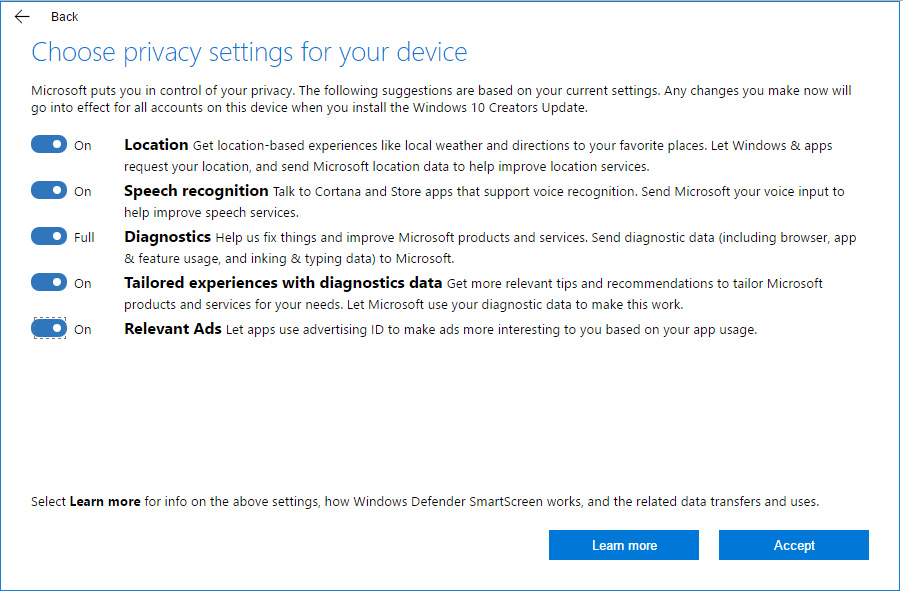This is an important first. Whether you trusted Microsoft, was worried about data collection, or simply didn’t care, the company deciding to be open about data gathering means there is no longer any doubts. “For the first time, we have published a complete list of the diagnostic data collected at the Basic level,” explains Windows chief Terry Myerson in a company blog post. “We are also providing a detailed summary of the data we collect from users at both Basic and Full levels of diagnostics.” Microsoft is now publishing Windows 10 data collection documents and will provide more information soon. “We will also share more information about how we will ensure Windows 10 is compliant with the European Union’s General Data Protection Regulation,” says Marisa Rogers, Microsoft’s Windows and devices privacy officer.
With the soon-to-launch (April 11) Creators Update, Microsoft will implement better controls for Windows 10. These controls will give users the ability to switch between basic and full levels of data collection. Myerson says the company has worked hard to ensure the Basic level will only take data that is necessary to maintain Windows 10 security. “As a result, we have reduced the number of events collected and reduced, by about half, the volume of data we collect at the Basic level.”
Changing Perceptions
It is clear that Microsoft has been rocked by consistent and sometimes false accusations levelled at Windows 10. Last month, the platform was accused of having a ‘keylogging’ feature that was turned on by default. Actually, it is not a keylogger at all and tracks typing and handwriting information. Microsoft explained that the service helps users improve typing. It was also not a new feature by any means. Microsoft has been making some headway to appease customers and watchdogs. Much of the good changes to privacy and data collection on Windows 10 are coming with the Creators Update. In January, the Electronic Frontier Foundation (EFF) praised Microsoft’s work in reducing diagnostic data collection: “The changes were very welcome from our perspective … they were definitely needed.”





